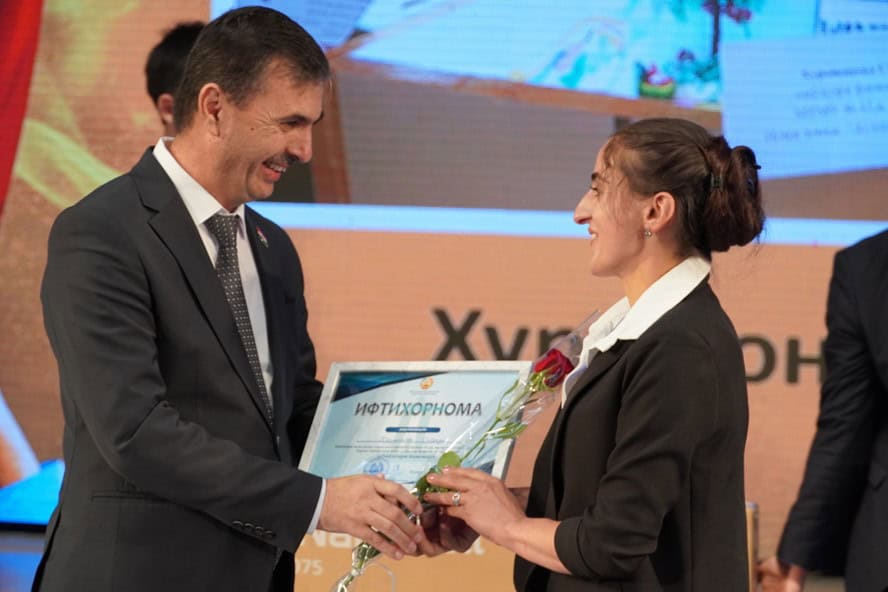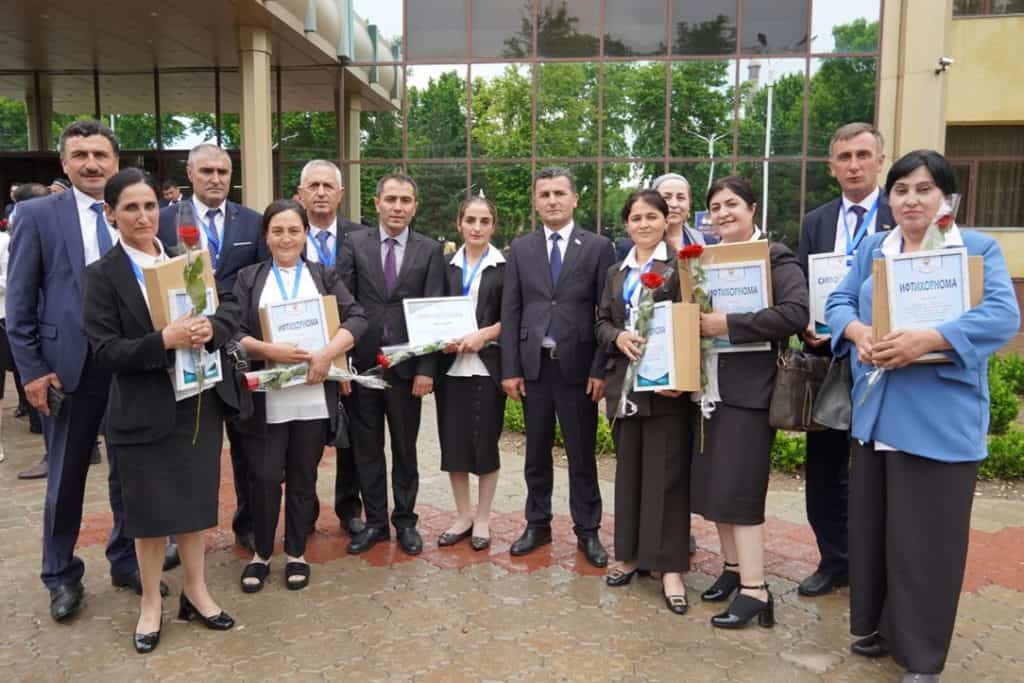The Aga Khan Foundation in Tajikistan, in collaboration with the Ministry of Education and Science (MoES), were delighted to have recently hosted their second annual ‘Innovative Teacher Awards’ as part of the Schools2030 programme.
The forum took place in Khujand city on 17-18 May this year. On the first day, 48 teachers from 200 schools showcased their innovative teaching solutions created through their work with Schools2030. These innovations were presented to an evaluation committee made up of representatives from government and other stakeholders. On the following day a ceremony was held to present awards to the teachers with the best ideas. The ceremony was attended by representatives from the MoES, the Deputy Governor of Sughd, Heads of the Regional Education Departments and some 500 teachers from across the country.
“Having the opportunity to go through four phases of the HCD trainings and with the support of our trainers and the project staff enabled me to identify my students’ learning challenges and find innovative solution to these challenges to improve my students’ learning quality” said Yuldoshev Huseyn, one of the winners, from the Khatlon region.
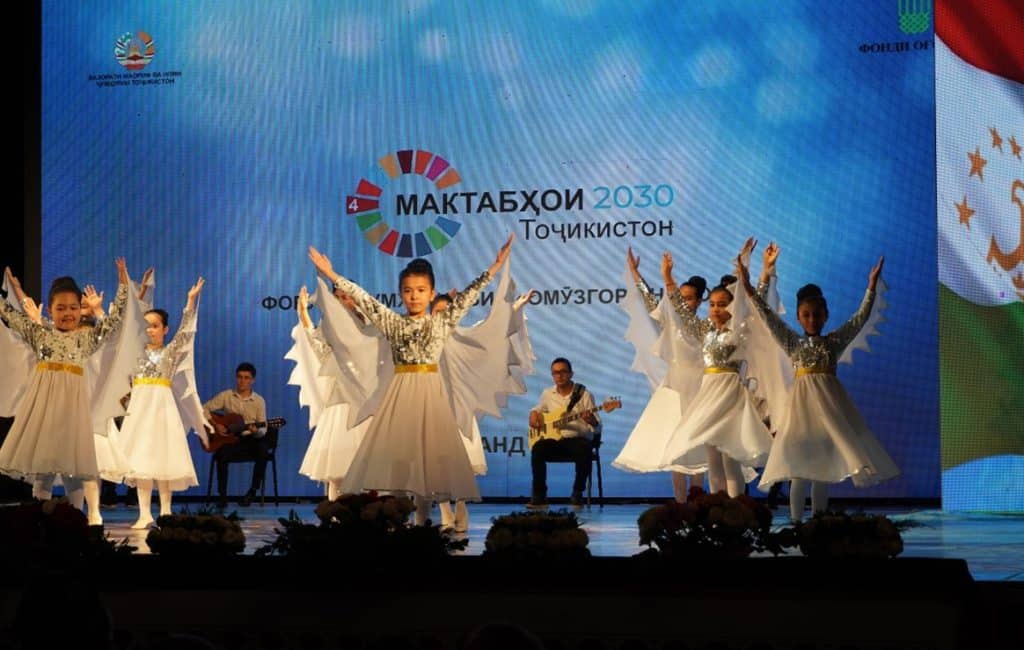

The four winning solutions included:
Yuldoshev Huseyn, Biology and Chemistry teacher, School #9, Bokhtar, Khatlon
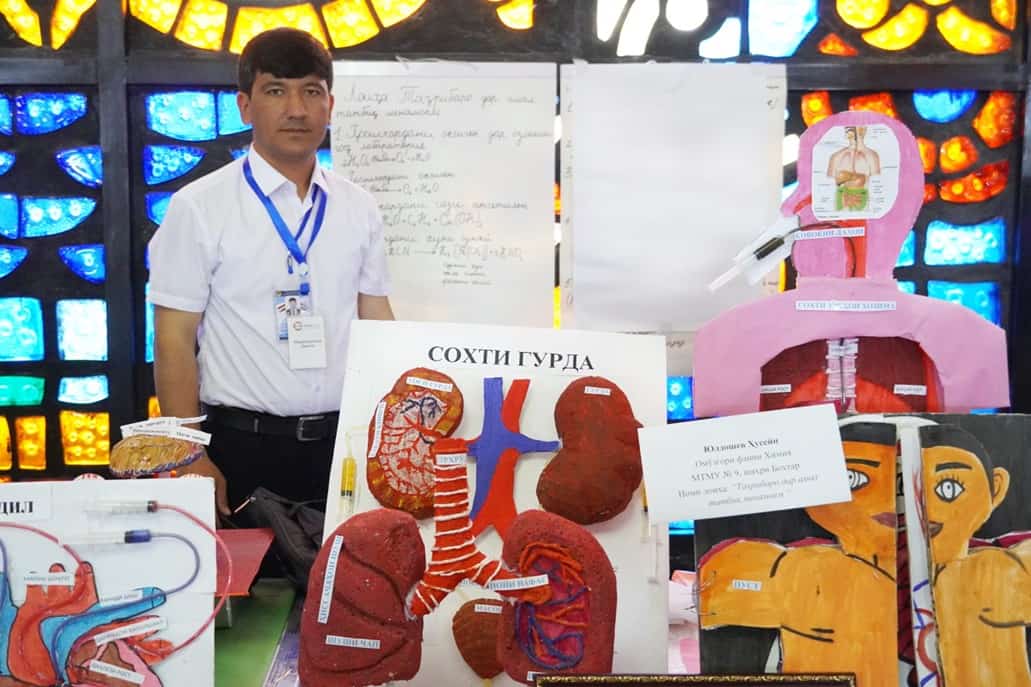
Challenge: Students lack interest in learning science subjects, struggling to understand the meaning of concepts.
Response: This idea works by organising practical lessons with students to show them the movement and activity of organs. The students and teacher have created various models and tools that allow them to understand more clearly how the body is constructed as well as how substances move through membranes. As a result of these practical lessons and model-making students learn, discuss and present each organ and their functions in detail. These lessons integrate chemistry and biology in a practical and engaging way.
One example is the “Human torso” made by students and the teacher from low-cost materials (bottles, medical drip and syringe, cardboard etc). The torso shows the movement of organs and real processes producing artificial blood and oxygen using a chemical reaction. Similarly, the students have produced chemical reactions using fruits and vegetables ingredients and explored how different type of fruits and vegetables influence bodily health and wellbeing. Making these kinds of models and conducting regular practical experiments increases students’ interest and applying their theoretical knowledge practically helps with comprehension of difficult concepts.
Khuromonova Sabzagul, Biology teacher, School #12, Tusyon, Roshtqala

Challenge: Students struggle to remember topics they have already covered or understand the function of organs and systems in the body
Response: The teacher assigns students biology topics in the form of problem questions. Students then research the question, collect relevant data and present their responses in a presentation form, through a model, by designing informational leaflets or other interactive ways allow them to explore a topic in a self-directed way. As a result, students made models such as skeletons with integrated electronics. In this way they are able to be creative whilst learning and applying theoretical ideas to their lives in more hands-on ways. Students then present their research findings and prepared models or skeletons to the whole class.
Jalolova Sarvinoz, Maths teacher, School #34, Tursunsoda, DRS

Challenge: Students struggle to remain active and engaged throughout the lesson
Response: This idea works by organising the classroom in a way that helps students remain focused and engaged throughout the lesson. This is done by decorating the classroom with math resources and formulas that are engaging, accessible and creative. Rather than sitting in a traditional way, students sit in groups of 4-5 and are assigned different types of activities related to improving counting, cooperation and leadership skills, amongst others. To decorate the classroom students themselves make resources linked to different topics.
Anusha Amoni, Primary teacher, School #4, Buston city, Sughd
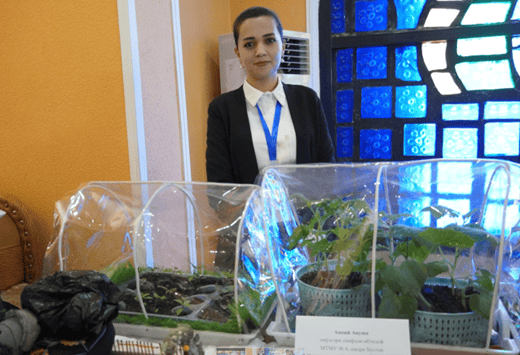
Challenge: Many students struggle to resolve small problems related to different subjects, as well as think beyond the textbook.
Response: The idea of the windowsill garden was to provide an environment for students to explore and improve their skills in problem-solving, numeracy, reading, collaboration, team building and awareness of environmental protection. By tending to the garden, students are imbued with an understanding of the importance of protecting nature, how a healthy eco-system develops and how they might respond to climate change-related challenges. Students are also made aware of the issues related to climate change in their community and encouraged to tackle them with small and easy interventions suitable for their age. Students during the lessons researched and wrote about the plants they grow on the windowsill, provided their observation on the progress of each plant as well as developed detailed analyses for each plant.
“The Aga Khan Development Networks is confident that such initiatives like the “Schools2030” project of the Aga Khan Foundation Tajikistan in cooperation with the Ministry of Education and Science of the Republic of Tajikistan, along with the programs and projects of development partners will make a huge contribution in the direction of enhancing the status of teachers and improving the quality of education”
Kishwar Abdulalishoev, CEO at the AKF Tajikistan.
The Forum highlighted the transformational approach of Schools2030 that aims to ensure that teachers are seen as experts in their own classrooms and beyond. It is a testament to the whole network of teachers, facilitators and others involved in the programme in Tajikistan that they are able to come together with policymakers and other teachers from across the country. Such a convening shows how small changes in practice can have an enormous butterfly effect, as the Schools2030 approach becomes embedded in the mindsets of education stakeholders across the country. This is the beginning of truly seeing school-led innovation influence system-level change.
